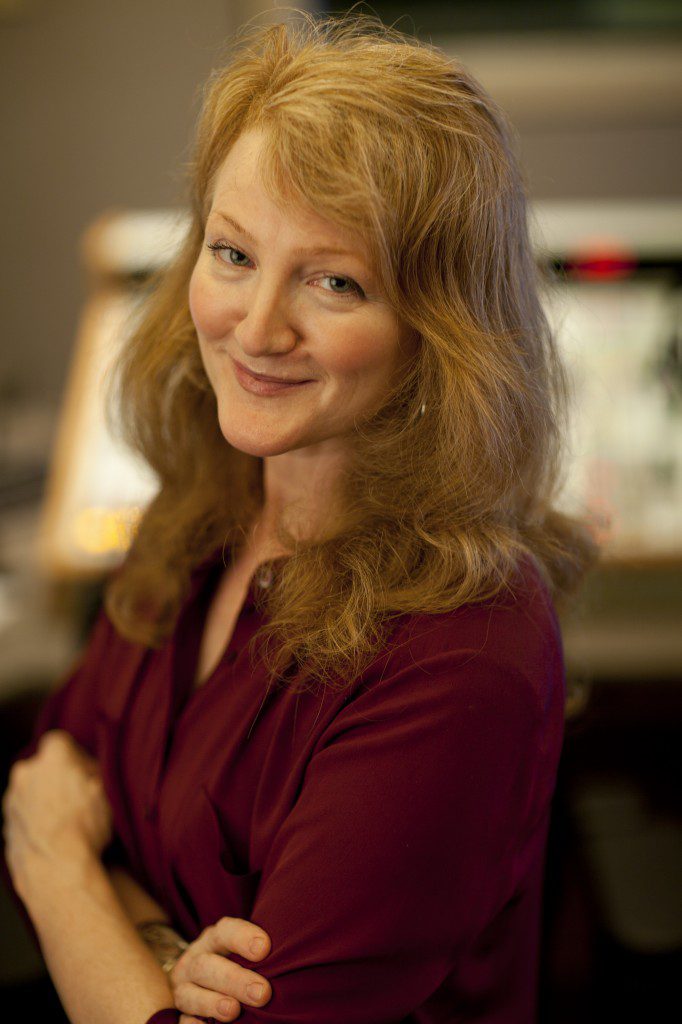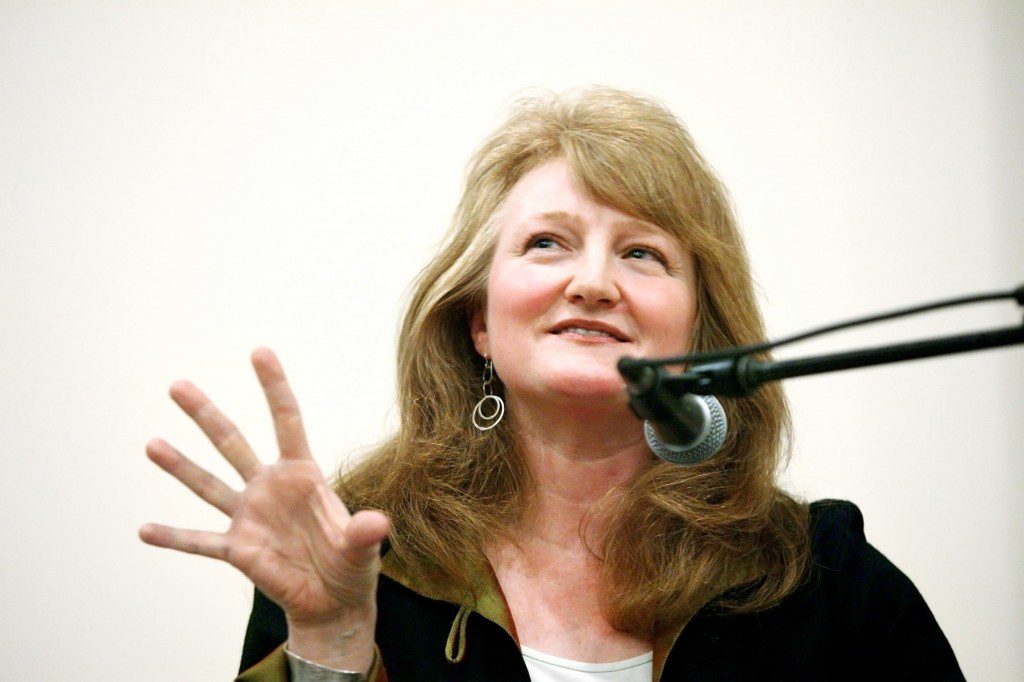
Her radio show On Being commands an international audience, yet Krista Tippett, who grew up in Shawnee, left Oklahoma with no such ambitions. The popular weekly NPR show is unique for its discussions about science, religion, spirituality and ideology, bringing listeners of all beliefs together.
Although she didn’t plan on a career emphasizing issues of faith, “so much goes all the way back to the First Baptist Church in Shawnee,” she says. “Church wasn’t a place you went to each week – it was in the air you breathed.”
From Shawnee she went to Brown University in Providence, R.I., before heading to Bonn, Germany, to study on a Fulbright Scholarship. Eventually, she returned to the U.S., and by then, Tippett became increasingly interested in the role of religion in individual and public life.
“In this culture, we get raised to be advocates for our religion or politics or for any idea of what we presumably know,” she says. “We don’t get so skilled in the delightful experience of just being curious.”
That curiosity sparked the creation of Speaking of Faith in 2003. The program’s name was changed to On Being in 2010.
“It’s just amazing and surprising how interesting almost everybody’s religious life is, how everyone has a story – even the most non-religious person – and also how we pay so much attention in public life to religious values and certainties,” she says.
Tippett has a degree in divinity from Yale University, has received numerous awards – including a Peabody Award – and is the author of Speaking of Faith and Einstein’s God, a collection of essays based on her interviews. If she could interview anyone past or present, that person would be Albert Einstein.
“He was not religious in any kind of traditional way, but he had a really interesting spiritual sensibility,” she says. “He had ideas that were profound and speak to modern people about curiosity, about our capacity to wonder and our reverence for mystery.
“The truth is, he might [have been] completely ornery and a terrible interviewee,” she says, “but I love the thought of it.”
If she could interview Einstein, Tippett says she would start by asking the same question she asks all her guests: “Was there a religious background to your childhood?”
This question, Tippett says, “plants people in their searching place, their soft place. I want the first question to sink people down into the depths of who they are. You have to start there. If you start from a combative place, it’s very hard to get out of that, and the mode they’re in will shape the conversation.”
Tippett’s skill as a host is in proportion to her willingness to listen and ponder the defining questions all people face.
“Everybody I knew was part of this Southern Baptist tradition with so many givens that people seemed to agree on,” Tippett says of her childhood. “As a teenager, I had a lot of questions, not doubts or critique. But I was fascinated in what was going on in the text and what it didn’t say, what it left open.”
Tippett lingers willingly in these metaphorical open spaces with her On Being guests, but as a grandchild of a Baptist preacher, she wasn’t always encouraged to ask her questions.
“My grandfather was not all that big on those open spaces,” Tippett says. “They weren’t what he wanted to talk about, and I was always aware of that.”
Questions, curiosity and help from a drama and debate coach in Shawnee have aided Tippett in becoming one of the most recognized radio personalities today. With a program broadcast on more than 330 public radio stations in the U.S. and globally via podcast, Tippett is perched to continue that ever-reaching discussion of humanity and tell the stories of people, mind and spirit.
“My father was adopted, so there weren’t any stories on his side of the family,” she recalls. “Some of my passion for storytelling comes from the absence of stories, the fact that delving into the stories was not such a part of my life.”
They are now.























